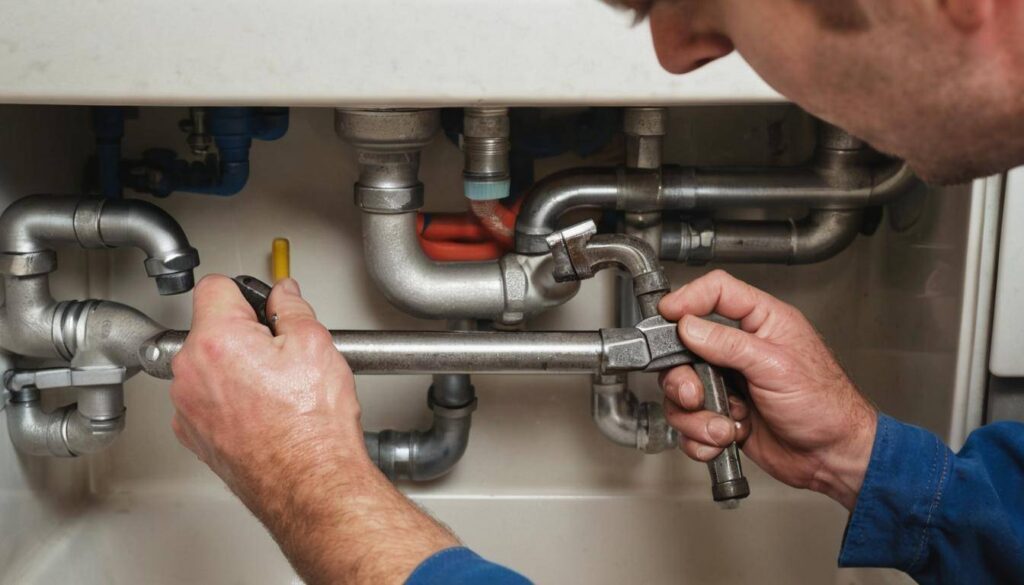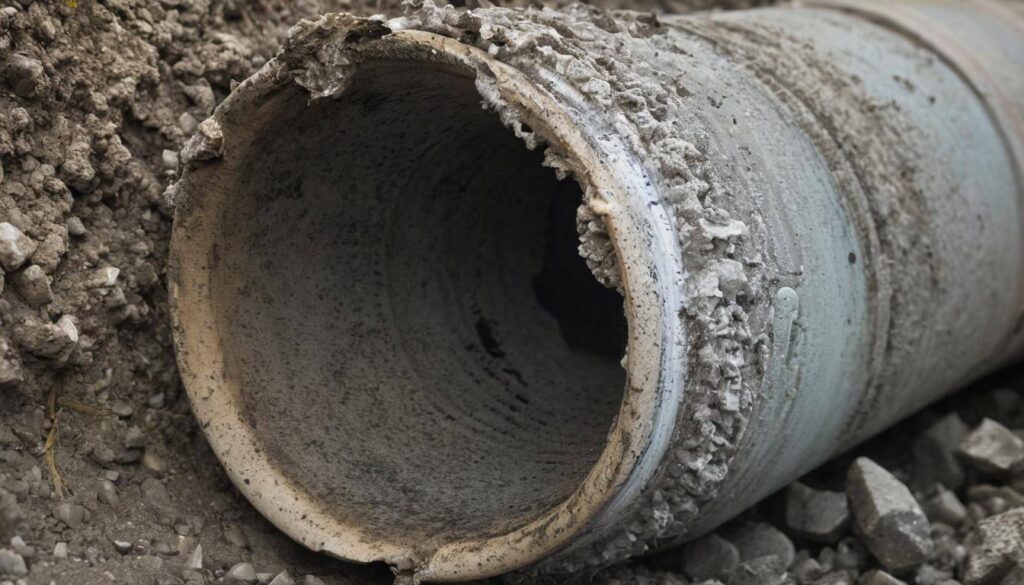Hot water is an essential component of our daily lives, playing a critical role in maintaining our comfort and convenience. From taking warm showers to doing laundry and washing dishes, we rely on hot water for various activities.
However, the reliability of our hot water supply can be abruptly disrupted when a hot water heater malfunctions. This brings us to the question: is it worth it to repair a hot water heater?
The Importance of Hot Water
Hot water is not just a luxury; it is an integral part of our well-being. Imagine waking up on a chilly morning in your home, hoping for a comforting shower only to be greeted by a stream of cold water.
The absence of hot water can disrupt our routines and leave us feeling uncomfortable and frustrated. Additionally, efficient access to hot water impacts other areas of our lives as well.
It is crucial to maintain proper hygiene standards, particularly when it comes to washing hands or sanitizing dishes effectively. Moreover, throughout history, Calgarians have recognized the importance of warm baths for relaxation and rejuvenation.
The therapeutic benefits of immersing oneself in warm water cannot be understated; it soothes sore muscles and promotes overall well-being. Therefore, the significance of having an adequately functioning hot water heater becomes apparent when considering its impact on both physical comfort and mental health.
Purpose of the Outline
The purpose of this outline is to delve into the question surrounding whether it is worth repairing a malfunctioning hot water heater or if investing in a new unit would be more prudent. While repair may seem like an obvious choice initially due to its potentially lower cost compared to replacement, various factors need consideration before making this decision. Throughout this article, we will explore these factors comprehensively — from analyzing the costs involved in repairs versus purchasing new units to considering the age and lifespan conundrum that affects efficiency and reliability.
We will also examine the importance of energy efficiency in making an informed decision. By exploring these aspects, this article aims to provide readers with a comprehensive understanding of the considerations involved in determining whether repairing a hot water heater is genuinely worthwhile or if pursuing alternative options would be more prudent.
Overview of Hot Water Heaters
Hot water heaters are an essential component of modern households, providing us with the luxury of readily available hot water for various domestic purposes. Understanding the different types, fuel sources, and components of these appliances is crucial when considering repairs or replacements.
There are two main types of hot water heaters: tankless and storage tank heaters. Tankless water heaters, also known as on-demand water heaters, have gained popularity due to their energy efficiency and compact design.
Unlike traditional storage tank heaters, which store a specific amount of heated water at all times, tankless models heat the water as it flows through the unit. They use electric resistance coils or gas burners to rapidly heat the incoming cold water to the desired temperature.
This instantaneous heating process eliminates standby heat loss experienced in storage tanks and ensures a continuous supply of hot water without limitations. Storage tank water heaters, on the other hand, consist of a large insulated tank that stores heated water until it is needed for use.
These conventional systems can be powered by electricity, natural gas, propane or oil. The tanks are equipped with electric heating elements or gas burners located near the bottom to raise and maintain the temperature of the stored water.
When a faucet or shower is turned on, cold water enters through a pipe at the bottom of the tank while simultaneously releasing hot water from an outlet pipe at the top. The primary function of both types is to provide warm or hot water for everyday tasks such as bathing, washing dishes, cleaning clothes, or any other domestic activities requiring heated water.
Signs of a Faulty Hot Water Heater
The Silent Chiller: Insufficient or No Hot Water
When you turn on the tap, expecting that comforting rush of warm water, but all you receive is a disappointing trickle of coldness, it could be a sign that your hot water heater is in need of repair. Insufficient or no hot water is one of the most common indicators that something is amiss.
It may be caused by a faulty heating element, a malfunctioning thermostat, or sediment buildup within the tank. These issues can prevent your water from reaching the desired temperature or limit its availability altogether.
Furthermore, if you notice that your hot water supply has been gradually decreasing over time, it could suggest an impending failure. While this symptom may not require immediate attention, it should not be ignored for long as it could eventually result in complete system failure.
A Symphony Gone Awry: Strange Noises and Odors
Your hot water heater shouldn’t resemble an orchestra gone wrong; therefore, if you start hearing peculiar sounds emanating from your unit, it’s worth investigating further. Banging or rumbling noises often indicate sediment accumulation at the bottom of the tank.
When heated by the burner or heating element, this sediment can cause steam bubbles to form and explode abruptly against the tank’s interior surface. Moreover, if you notice any foul odors coming from your hot water taps—such as a rotten egg-like smell—it signifies another issue altogether: bacteria growth within the tank.
This typically occurs when there is an excess accumulation of organic matter within your plumbing system. While not directly related to repair needs per se, these unusual sounds and odors should serve as cautionary signs to prompt homeowners to contact a professional for inspection and potential remedies before more severe problems arise.
Keeping an eye (and ear) out for signs that your hot water heater may be in need of repair is crucial for maintaining a functional and efficient system. Insufficient or no hot water, strange noises, and odors are all indications that something may be amiss within the unit.
These signs not only help identify existing issues but also serve as early warning signals for potential future failures. By addressing these problems promptly, homeowners can avoid more costly repairs or even complete system replacements.
Factors to Consider Before Repairing
Cost Analysis:
Repairing a hot water heater involves considering the potential costs associated with the repair, including parts and labor. The cost of replacement parts can vary depending on the specific issue and the type of heater.
For instance, replacing a heating element or thermostat in an electric water heater may cost around $100 to $200 plus, while fixing a gas valve in a gas-powered unit could range from $150 to $400 or more. When determining whether repair is worth it, comparing these costs with the price of purchasing a new unit is crucial.
On average, buying a new hot water heater can range anywhere from $500 to $1,500 or more, depending on factors like size, brand, and energy efficiency rating. Additionally, it is important to take into account any cost-saving measures that might affect the decision-making process.
Some manufacturers offer warranties that cover certain repairs or replacements for a specific period. Furthermore, DIY repairs can reduce labor costs if you have the necessary skills and tools.
Most plumbers recommend that if your system is only a few years old, then it will make sense to pay a few hundred dollars to repair it so that it doesn’t cost you thousands of dollars in repair down the road, and this will add 5 to 10 years more on your water heater.
Age and Lifespan:
The age of a hot water heater plays an essential role in its efficiency and reliability. As units grow older, they tend to become less efficient due to wear and tear on internal components like heating elements or thermocouples. Moreover, older heaters are more prone to experiencing frequent issues that require repairs.
To assess whether repairing an older unit is more cost-effective than investing in a new one, understanding average lifespan for different types of heaters is crucial. Traditional tank-style water heaters typically last between 10 to 15 years with proper maintenance.
On the other hand, tankless heaters have longer lifespans ranging from 15 to 20 years or even more. Considering both repair costs and remaining lifespan becomes important when deciding whether repairing an older hot water heater provides value for money compared to purchasing a new, more modern and efficient unit.
Energy Efficiency:
One crucial aspect to consider before repairing a hot water heater is its energy efficiency. Advancements in technology have led to the development of more energy-efficient models.
Newer units are designed to minimize heat loss and reduce energy consumption, resulting in lower utility bills. Older hot water heaters may lack the required energy-saving features, which can lead to higher operating costs over time.
By repairing an outdated unit, you may miss out on the long-term savings offered by newer models. Considering the potential savings on utility bills when investing in a newer, energy-efficient hot water heater becomes vital.
These advanced models utilize improved insulation, better heat exchange mechanisms, and smart controls that optimize performance according to usage patterns. Therefore, it is worth assessing whether the repair costs outweigh the potential energy savings of upgrading to a more efficient model.
In summary, when faced with the decision of whether it is worth it to repair a hot water heater, careful consideration of various factors is necessary. Conducting a cost analysis that compares repair expenses with purchasing a new unit can provide financial clarity. Understanding how age influences efficiency and reliability allows homeowners to evaluate whether repairs are worthwhile or if investing in a new heater will be more cost-effective in the long run.
Additionally, factoring in advancements in energy efficiency enables individuals to gauge potential savings on utility bills by upgrading to newer models. While there are instances where repairing an older unit might make sense from both financial and environmental perspectives, technological innovations have made modern hot water heaters more efficient and eco-friendly.
Ultimately, making an informed decision depends on weighing these factors based on individual circumstances and priorities. By doing so, homeowners can ensure they make choices that align with their needs while embracing greener alternatives for enhanced comfort and sustainability.



